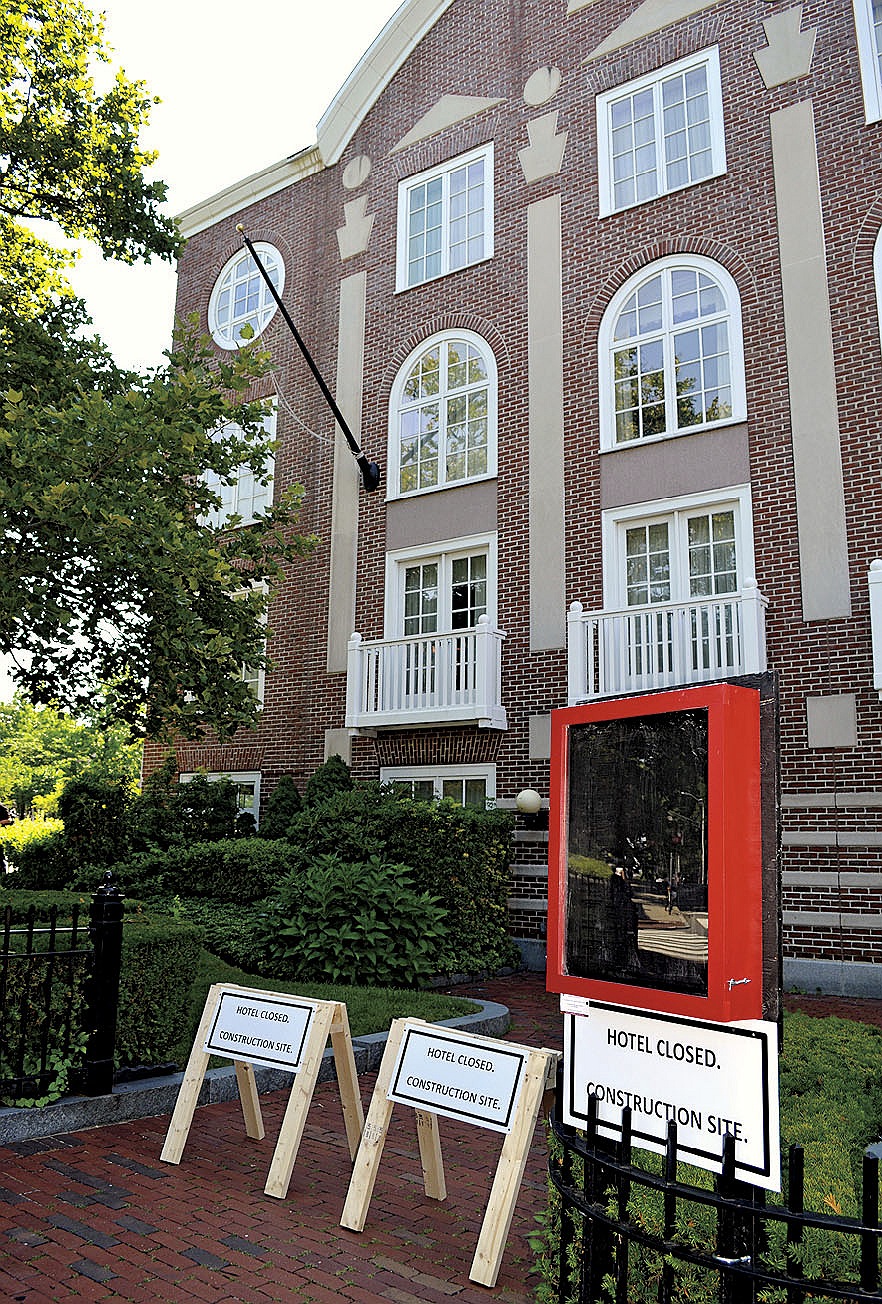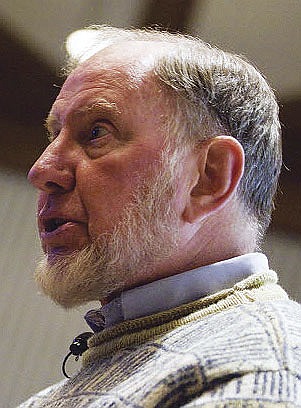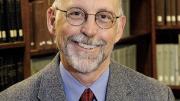Interim College Dean
Gray professor of systematic botany Donald H. Pfister was appointed interim dean of Harvard College in early July, succeeding Evelynn M. Hammonds, whose service concluded at the end of June. Pfister has been dean of Harvard Summer School, and was master of Kirkland House from 1982 through 2000. He said of his new charges, “The College is filled with talented, energetic students who breathe so much life into this University,” and added that he looked forward to his continued engagement with them. Faculty of Arts and Sciences dean Michael D. Smith cited Pfister’s “deep engagement with both undergraduate education and with the learning communities of the Houses.” Smith will convene an advisory committee to search for a permanent dean this fall.
MOOC Momentum
HarvardX announced fall online courses on the edX platform in fields spanning Chinese history, neuroscience, and poetry (see “HarvardX Announces Fall Courses”). Meanwhile, edX formed its first partnership in India, as the Indian Institute of Technology became an affiliate. In an interview with The Financial Times, edX president Anant Agarwal predicted a purely online degree offering by a partner university within less than one year. Coursera, the for-profit company offering a wide array of massive open online courses (MOOCs), raised $43 million in a second round of financing, from new investors including a World Bank affiliate; that brings its capitalization to $65 million. According to news reports, Coursera aims to expand international outreach (in part by translating materials and developing mobile-device courses for students in Africa and elsewhere who lack computers); open its platform to third-party developers (edX is open-source); and double its staff to approximately 100 (on a trajectory parallel to edX’s reported plans). And Blackboard, a classroom-software company, announced plans to provide free MOOC hosting for its customers, and threatened to undercut other enterprises’ fees.
Socially Conscious Investing
The Corporation Committee on Shareholder Responsibility has chosen Parnassus Equity Income Fund as the investment vehicle through which it will accommodate donors who wish to direct their gifts to a socially conscious investment vehicle (rather than to the general funds overseen by Harvard Management Company). Each year, 20 percent of the fund’s beginning market value will be made available for financial aid across the University. Separately, Harvard Management Company, which oversees the endowment assets, has appointed Jameela Pedicini vice president for sustainable investing, a new position responsible for investigating environmental, social, and governance issues associated with the University’s investments. For more information, see “Jameela Pedicini Named First HMC VP For Sustainable Investing.”
Reading Period Revised
The Faculty of Arts and Sciences has voted to reconfigure the end of each term, beginning in the fall of 2014, with a revised calendar that slightly shortens reading period, prohibits regular instruction during that period (except for intensive language classes), and—acknowledging the reality that examinations are administered in fewer courses—bestows a new name on a slightly lengthened Final Examination and Project Period. Final papers, take-home exams, and other culminating assignments must be due on or before the official exam date assigned to each course, but no earlier than the fourth day of reading period.
Admissions Ruling
The Supreme Court’s late-June procedural ruling in Fisher vs. University of Texas at Austin (see “Supreme Court Rules on Affirmative Action”), had the effect of upholding admissions processes at selective institutions that consider race in admissions. President Drew Faust said in a statement, “We are heartened that the Supreme Court today has affirmed the vital interest of universities in bringing together students from many different backgrounds and points of view.” Nonetheless, some educators who favor such admissions policies felt that the court’s ruling in fact poses technical hurdles (a standard of “strict scrutiny”) that might invite still more legal challenges and curtail such admissions practices. Columbia president Lee C. Bollinger—a constitutional-law professor (and defendant in earlier cases when he was president of the University of Michigan)—expressed concern in The New York Times that the opinion “will empower lower courts, and, no doubt, litigants to challenge benign considerations of race—those that seek to advance legitimate goals of diversity in education—more easily than ever.”
Fundraising Report
As Harvard readies the public phase of its capital campaign (see “The Campaign Context”), Rice University announced that it had exceeded the $1-billion goal it set for its effort launched in 2008, and the University of Virginia said it had met the $3-billion target it established in 2004. Separately, Stanford (for the past eight years the leading fundraiser among U.S.-based universities and colleges) announced a new, $151-million gift from alumnus John Arrillaga, a Silicon Valley real-estate developer—its largest from a living individual. And Danville, Kentucky-based Centre College, enrollment 1,370, has received a $250-million gift, the largest ever to a liberal-arts college, to fund 160 scholarships for students concentrating in natural or computational sciences or economics.
Women’s Transition
The Committee for the Equality of Women at Harvard (CEWH; https://world.std.com/~cewh) was founded in 1988 by concerned Radcliffe alumnae (many from the classes of 1953 and 1958) who sought a significant increase in tenured women faculty and equity for all women at Harvard. (Among other steps, it established the Harvard Women Faculty Fund to raise money to be held in escrow until matters improved.) During reunion meetings this past May, the organization decided that—with the Office of Faculty Development and Diversity and the Harvard College Women’s Center firmly established, and the creation of a new Shared Interest Group, Alumnae/i Network for Harvard Women (www.harvardwomensig.com), spearheaded by CEWH members—its goals had been achieved and it will dissolve this year. (For an update on the numbers of female faculty within the Faculty of Arts and Sciences, see “Where the Women Aren’t,” page 56.) Updated 2/7/2015 to correct the URL for Alumnae/i Network for Harvard Women.
Scientific Pursuits
The Association of American Universities has announced that eight campuses will receive seed funding for pilot projects to enhance undergraduate education in science, technology, engineering, and mathematics (the so-called STEM fields); Brown, Penn, and Washington University are the private institutions awarded grants. Elsewhere, the State University of New York has decided to separate the Albany campus’s College of Nanoscale Science and Engineering as a stand-alone degree-granting institution, emphasizing the growing scope and importance of semiconductor and high-technology research and industrial investments in the region, as well as a renewed effort to compete for further research funding in the field.

Checked Out
The Inn at Harvard closed on July 15, pursuant to plans that were announced a year earlier, and will be remodeled as swing space for those undergraduates displaced temporarily by the College’s extensive, multiyear residence-renovation program. The adaptation of guest rooms and construction of dining and social spaces is expected to be completed in time for the 2014-2015 academic year, when Dunster House will be redone. Displaced workers were offered employment-related services and severance packages.
Nota Bene
Librarian in chief. Sarah Thomas has been appointed vice president for the Harvard Library, a new position, reporting to the provost. She had been serving as Bodley’s Librarian and director of the Bodleian Libraries at the University of Oxford, and was previously Kroch University Librarian at Cornell. As previously reported, Mary Lee Kennedy, senior associate provost for the Harvard Library since 2011, departed in May to become chief library officer of the New York Public Library.
Medical managers. Two senior Harvard Medical School officials have moved on to new posts. William W. Chin, executive dean for research since 2010, departed to become executive vice president of science and regulatory affairs for the Pharmaceutical Research and Manufacturers of America, effective July 1. And executive dean for administration Richard G. Mills, who had been at the medical school since 2005, has been appointed Dartmouth’s executive vice president and chief financial officer.

Photograph by Brooks Canaday/Harvard News Office
Robert Putnam
Humanities honorands. Robert Putnam, former dean and now Malkin professor of public policy at Harvard Kennedy School—author of Bowling Alone, on community and social capital—was awarded the National Humanities Medal on July 10. Other honorands included a pair of alumnae historians: Jill Ker Conway, Ph.D. ’69, former president of Smith College and author of The Road from Coorain, and Natalie Zemon Davis, A.M. ’50, LL.D. ’96, whose works include The Return of Martin Guerre.
Miscellany. Rothenberg professor of Romance languages and literatures and professor of comparative literature Diana Sorensen has been elected to the board of trustees of the National Humanities Center, a private institute for advanced study in the field. (Bass professor of English Louis Menand is also a trustee.) For more about her work as dean of arts and humanities, see “Invigorating the Humanities”.…Corporation member Theodore V. Wells Jr., a prominent trial lawyer, has been retained as part of Steven A. Cohen’s defense team as his large hedge fund, SAC Capital, contends with insider-trading criminal charges.









